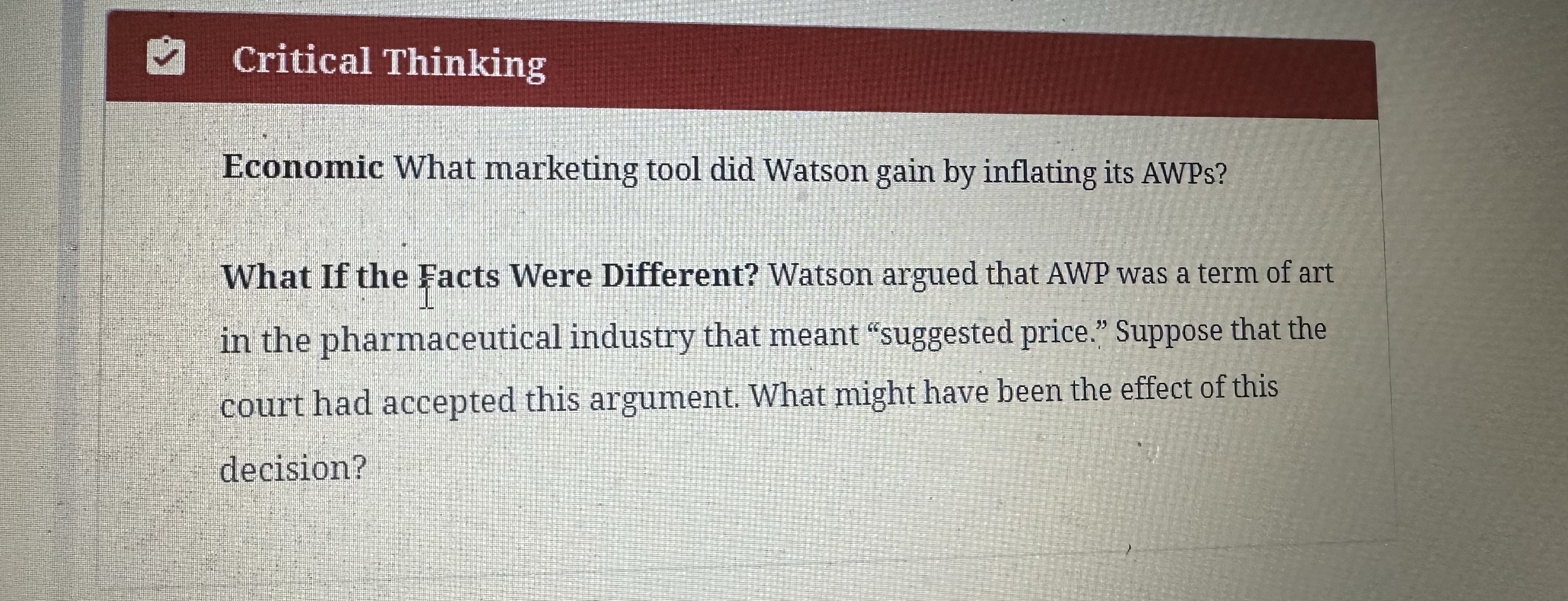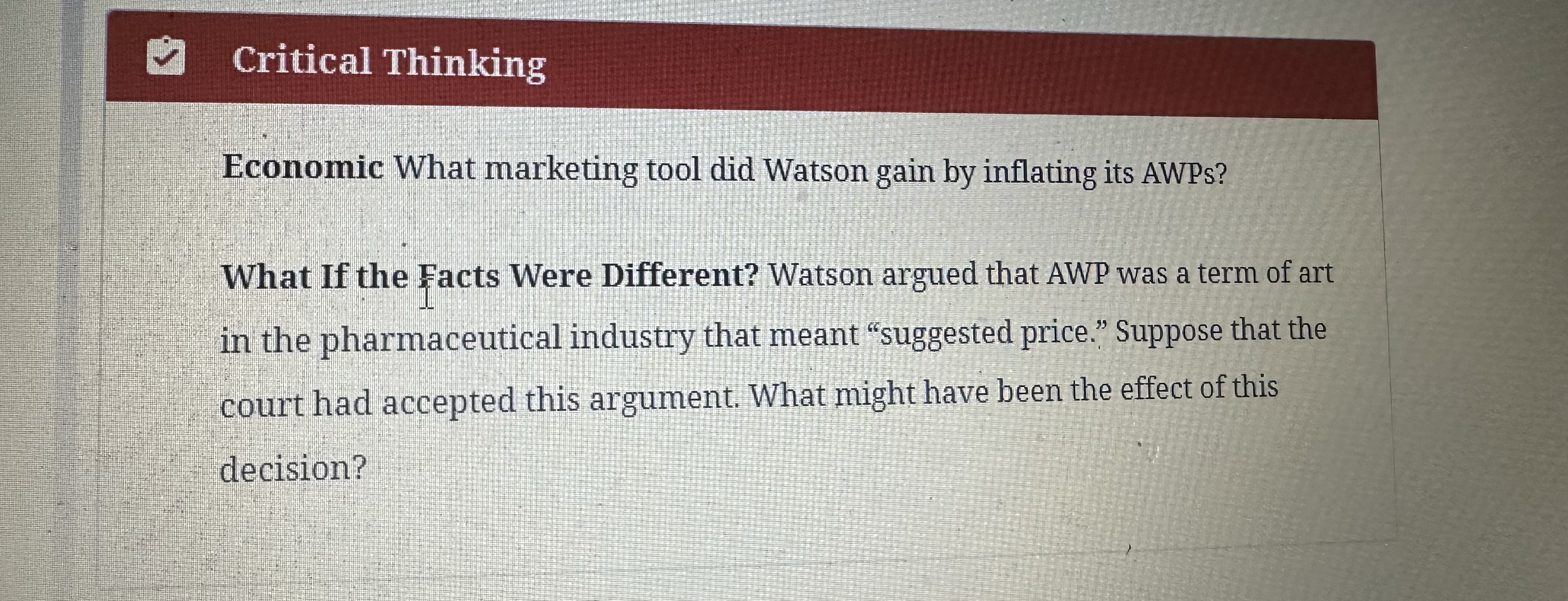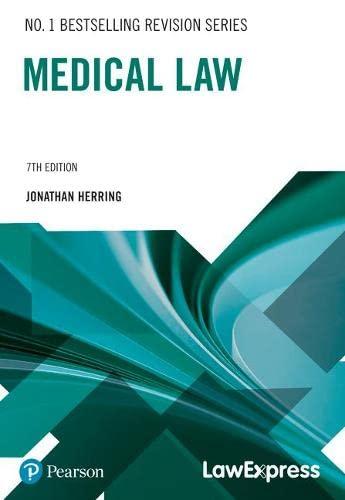Question
Case 3.2 Watson Laboratories, Inc. v. State of MississippiSupreme Court of Mississippi, 241 So.3d 573 (2018).Facts Watson Laboratories, Inc., makes generic drugs, which are provided

Case 3.2 Watson Laboratories, Inc. v. State of MississippiSupreme Court of Mississippi, 241 So.3d 573 (2018).Facts Watson Laboratories, Inc., makes generic drugs, which are provided by pharmacies to Medicaid patients. In the state of Mississippi, a claim is submitted for the cost of the drug to Mississippi Medicaid. The claim is paid according to a percentage of the drug's average wholesale price (AWP). Like other drug makers, Watson published its products' AWPs. But for more than a dozen years, Watson set each AWP to meet the requirements to obtain a generic designation for the drug, without regard to the actual price.88When Mississippi Medicaid learned that the actual prices were much lower than the published AWPs, the state filed a suit in a Mississippi state court against Watson. The court concluded that Watson caused the state to overpay for the drugs, and ordered the payment of more than $30 million in penalties, damages, and interest. Watson appealed.IssueDid Watson commit fraud regarding the AWPs of its generic drugs?DecisionYes. The Mississippi Supreme Court affirmed the lower court's order. Watson falsely misrepresented its AWPs, "knew that Mississippi Medicaid would rely on its false statements, and benefitted from this reliance."ReasonThe elements of fraud are1. the misrepresentation of facts with the knowledge that they are false,2. an intent to induce another to rely on the misrepresentation,3. justifiable reliance by the deceived party,4. damage suffered as a result, and5. a causal connection between the misrepresentation and the injury.The facts in this case established all of these elements. For years, Watson published AWPs that were fabricated numbers, knowing and intending that Mississippi Medicaid would rely on them to make its reimbursements. Mississippi Medicaid did not know that the numbers had no ratibnal relationship to the actual prices and accepted the AWPs as a proper starting point for determining reimbursement rates. Evidence showed that determining reimbursements on this basis led to overpayment for the drugs in question.The evidence also supported the extent of the damage suffered at the expense of the taxpayers of the state of Mississippi.

Step by Step Solution
There are 3 Steps involved in it
Step: 1

Get Instant Access to Expert-Tailored Solutions
See step-by-step solutions with expert insights and AI powered tools for academic success
Step: 2

Step: 3

Ace Your Homework with AI
Get the answers you need in no time with our AI-driven, step-by-step assistance
Get Started


